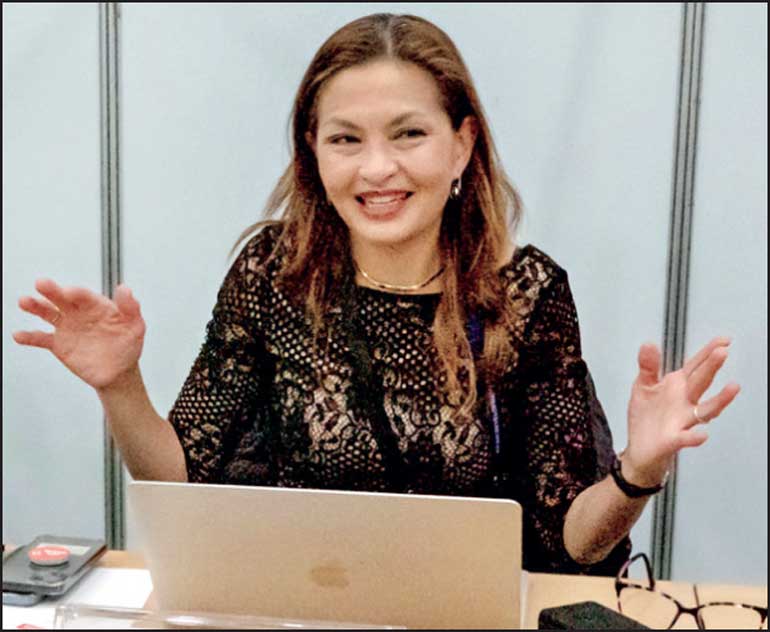Wednesday Feb 25, 2026
Wednesday Feb 25, 2026
Wednesday, 10 May 2023 00:45 - - {{hitsCtrl.values.hits}}

Asian Development Bank Chief of Gender Equality Samantha Hung
By Charumini de Silva
Asian Development Bank (ADB) Chief of Gender Equality Samantha Hung last week said financial inclusion and female education in STEM areas are key factors Sri Lanka should focus on rebuilding an inclusive and resilient economy.
“In challenging economic circumstances, it is important that Sri Lanka looks to boosting financial inclusion to ensure women empowerment via quality education and training, particularly into areas such as science, technology, engineering and mathematics (STEM),” she said during a media briefing on how ADB is advancing gender equality in the region on the side-lines of ADB’s 56th Annual Meeting in Incheon, Republic of South Korea.
Pointing out that financial inclusion is broadly defined as the access of particularly low-income households, and small and medium enterprises, to financial services, she said financial inclusion is an important pillar of women’s economic empowerment.
“In Sri Lanka, we have supported over 700 women entrepreneurs to obtain finance to help grow their businesses. This has provided a vital lifeline in an economically challenging context,” she added.
She also said that the ADB is working with Sri Lanka on a Policy Based Loan (PBL), which could be explored on these areas in the coming months.
Hung also said having access to and decision-making power over household income, as well as earned personal income, contributes to shifting social norms within the household and the community on women’s roles and voice.
She said it is also linked with reductions in gender-based violence and improvements in the health and livelihoods of children.
“Women’s economic empowerment is women’s ability to make and pursue informed decisions about their lives and livelihoods,” she said, noting that to promote women’s economic empowerment, ADB looks at how women’s life cycles and economies work and support Governments and the private sector to design programs to address women’s and girls’ needs at the various stages of their lives.
“ADB works with governments and the private sector to reduce inequalities in labour markets, entrepreneurship, and financial inclusion by strengthening women’s skills and access to decent work, finance, and training,” she explained.
Noting that ADB has a critical role in advancing gender equality in the region through its operations and financing, she said accelerating progress in gender equality is one of ADB’s seven operational priorities under Strategy 2030.
“To translate those commitments into action, we have set ourselves ambitious targets to ensure that our investments and knowledge can help more women and girls to enjoy empowerment opportunities,” she stressed.
As per her 2020–2022, 99% of ADB’s committed operations promoted gender equality, through financing and knowledge solutions, including improving women’s access to quality jobs, fostering women’s entrepreneurship, and building women’s resilience to climate change.
“This is up from 96% in 2019–2021, and well on track to exceed ADB’s Strategy 2030 target of 75% in 2030,” she added
Hung also said they work with digital financial providers to support the development of Apps that overcome traditional barriers of low collateral by looking at alternative credit scoring models, which assess different ways women save and spend.
“ADB is also building the capacity of financial institutions across the region, through our Trade and Supply Chain Finance Program’s gender initiative and other private sector transactions, where we work with partner banks to create more gender-responsive financial services,” she added.